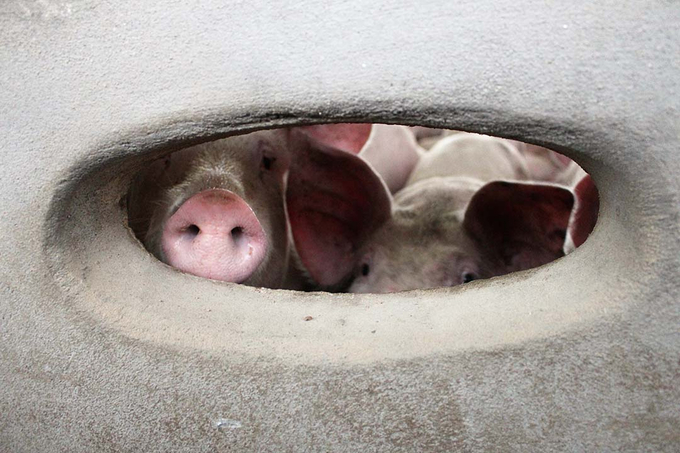May 17, 2025 | 05:19 GMT +7
May 17, 2025 | 05:19 GMT +7
Hotline: 0913.378.918
May 17, 2025 | 05:19 GMT +7
Hotline: 0913.378.918

Photo: Vincent ter Beek.
RusAgro has been building a pig cluster in the Mikhailovsky territory of priority development since 2016. It includes 9 pig farms, a feed mill with grain storage, meat-processing plants and a semi-finished product workshop. The cluster’s production capacity is set at 75,000 tonnes of pork in slaughter weight, though the company reported it could be expanded in the future.
“Most likely, we will reach full production next year, especially if the potential for pork export to China is realized,” Tarasov said.
Speaking about the possible expansion plans in light of the Chinese withdrawal of the 15-year import ban on pork from Russia, Tarasov claimed that the company “have already built enough to develop this direction.”
RusAgro has a Far Eastern cluster development programme, but so far, the company has approached it relatively cautiously. “We will make concrete decisions when we understand the export potential,” Tarasov explained.
In May 2023, an ASF outbreak was registered at the pig farms Leninsky-1 and Leninsky-2 in the Primorsky Krai, the regional authorities disclosed. The veterinary authorities lifted the quarantine at the facilities only in early November.
The outbreaks cost the Primorsk Krai nearly 12% of its pig population, the regional government said, not providing concrete figures. The outbreak has not impacted the food security in the region, Andrei Bronts, Primorsk Krai Agricultural Minister, reported.
ASF seemingly is not losing its grip on the Russian pig industry. In November, the veterinary authorities registered 5 outbreaks in the Voronezh region, as a result of which 120,000 heads of pigs are due to be culled.
Voronezh is among the top-3 Russian pork producing regions, Alexander Gusev, the regional governor said, adding that the region is making a lot of effort to contain the spread of the disease.
“The main thing that we managed to do was to prevent the spread of viruses to new areas and beyond the region,” Gusev said.
The virus was detected at 2 pig farms of AgroEko, a prominent pig farming company. In addition, ASF was found at the Bobrovsky meat processing plant, operated by Rusmeat Group. The infection was detected in seven refrigeration chambers and a workshop for the production of protein and vitamin concentrates.
(PP)

(VAN) Fourth most important food crop in peril as Latin America and Caribbean suffer from slow-onset climate disaster.

(VAN) Shifting market dynamics and the noise around new legislation has propelled Trouw Nutrition’s research around early life nutrition in poultry. Today, it continues to be a key area of research.

(VAN) India is concerned about its food security and the livelihoods of its farmers if more US food imports are allowed.

(VAN) FAO's Director-General emphasises the need to work together to transform agrifood systems.

(VAN) Europe is facing its worst outbreak of foot-and-mouth since the start of the century.

(VAN) The central authorities, in early April, released a 10-year plan for rural vitalization.

(VAN) Viterra marked a significant milestone in its carbon measurement program in Argentina, called Ígaris, reaching 1 million soybean hectares measured.